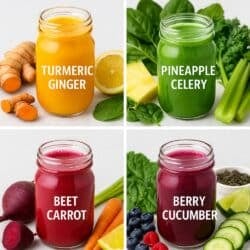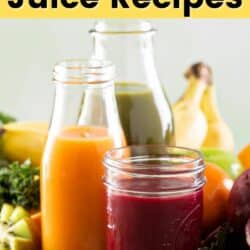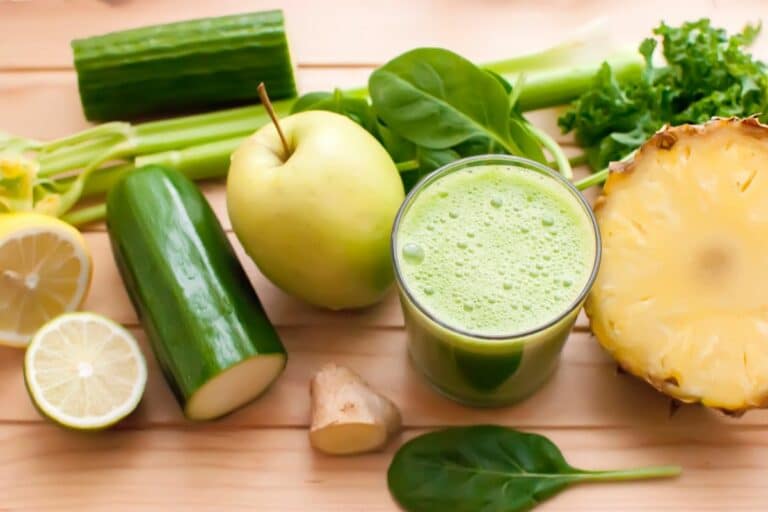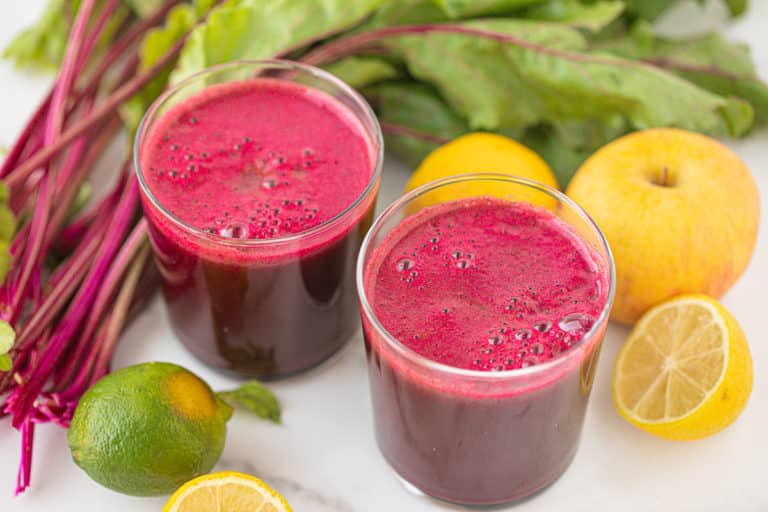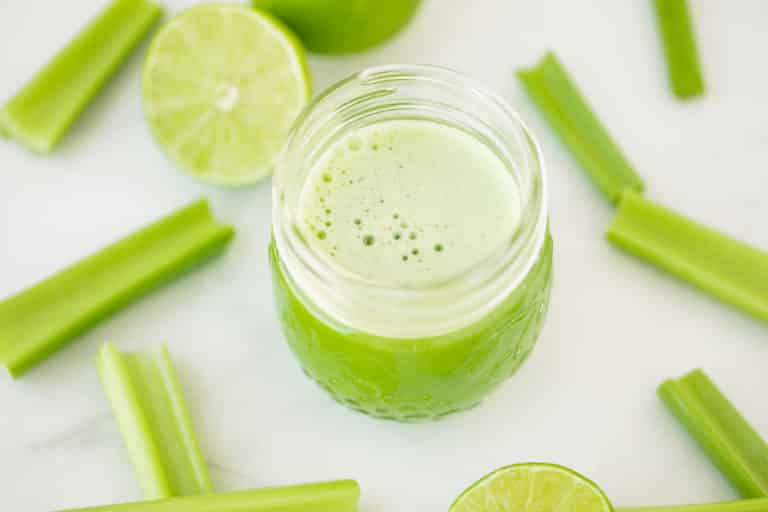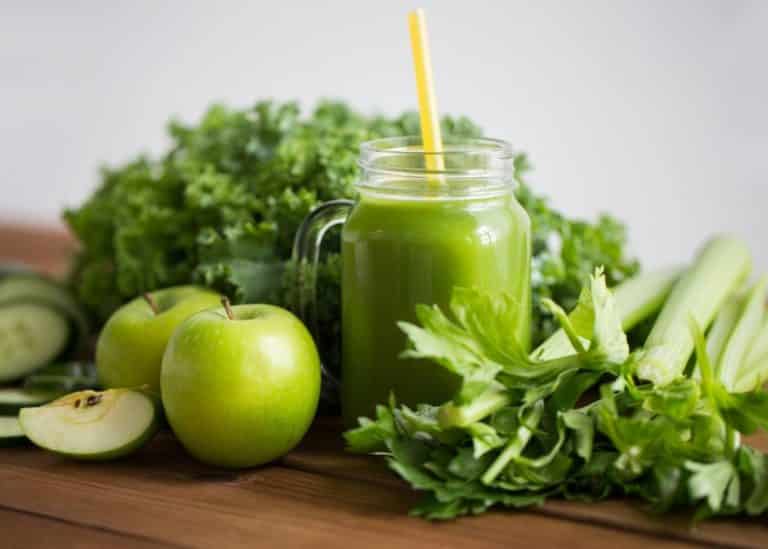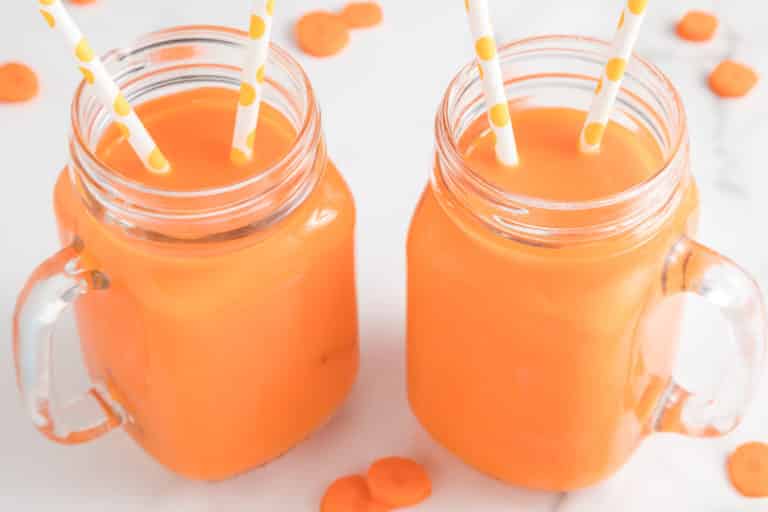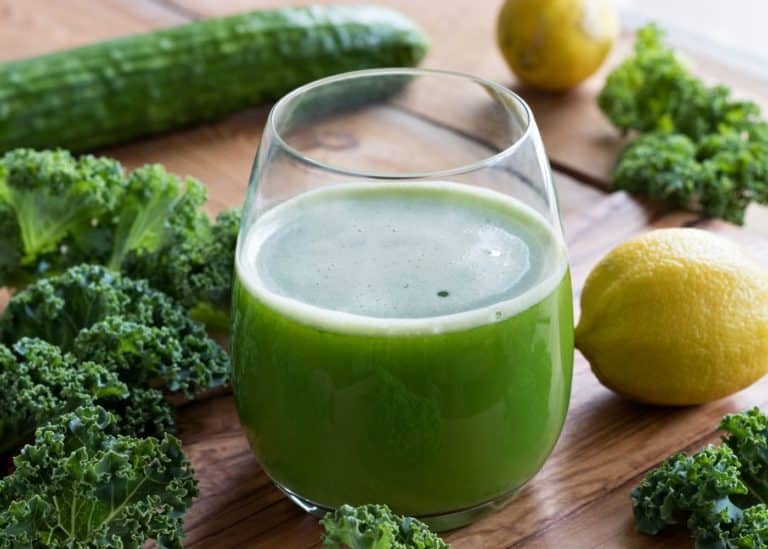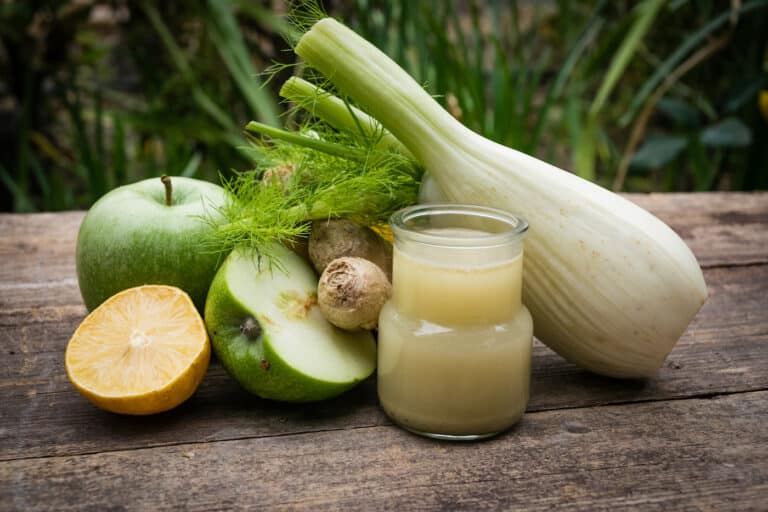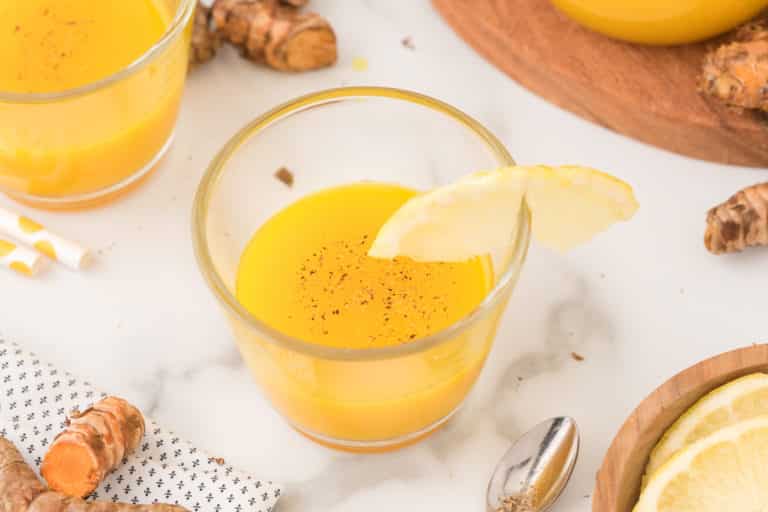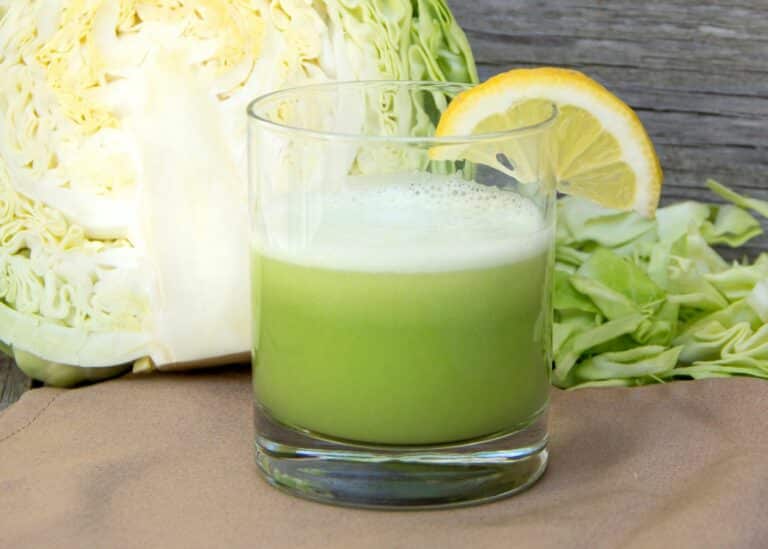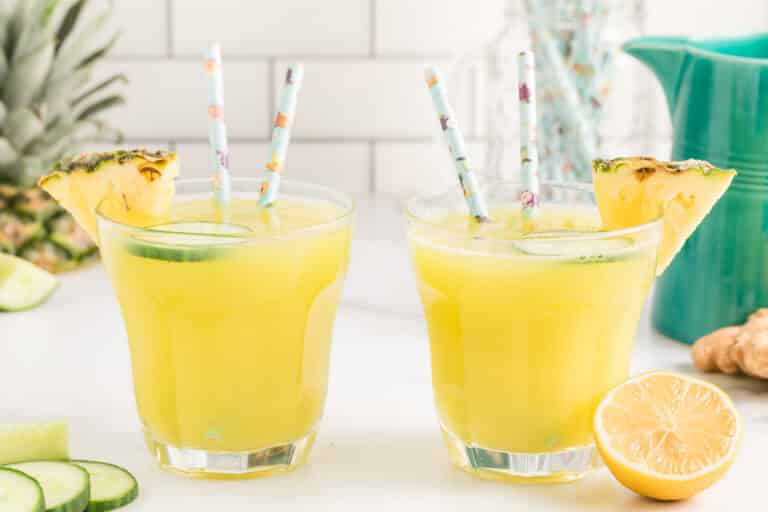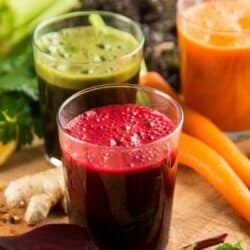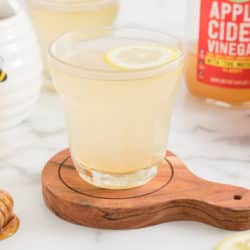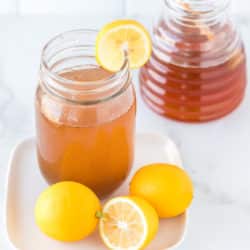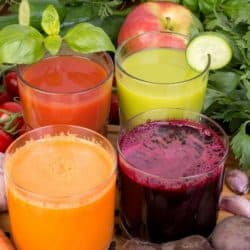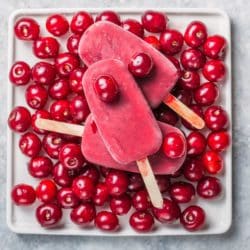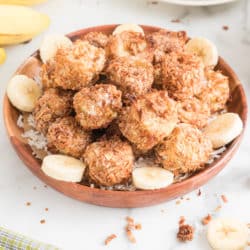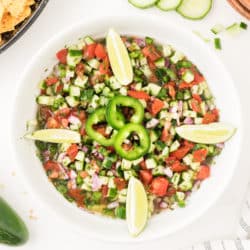Juicing for Inflammation (Anti-Inflammatory Recipes & Tips)
Inflammation can lead to various health challenges, but consuming the right foods can help combat it. Many fruits and vegetables have powerful anti-inflammatory properties. In this article, we’ll delve into tips and recipes when Juicing for Inflammation.
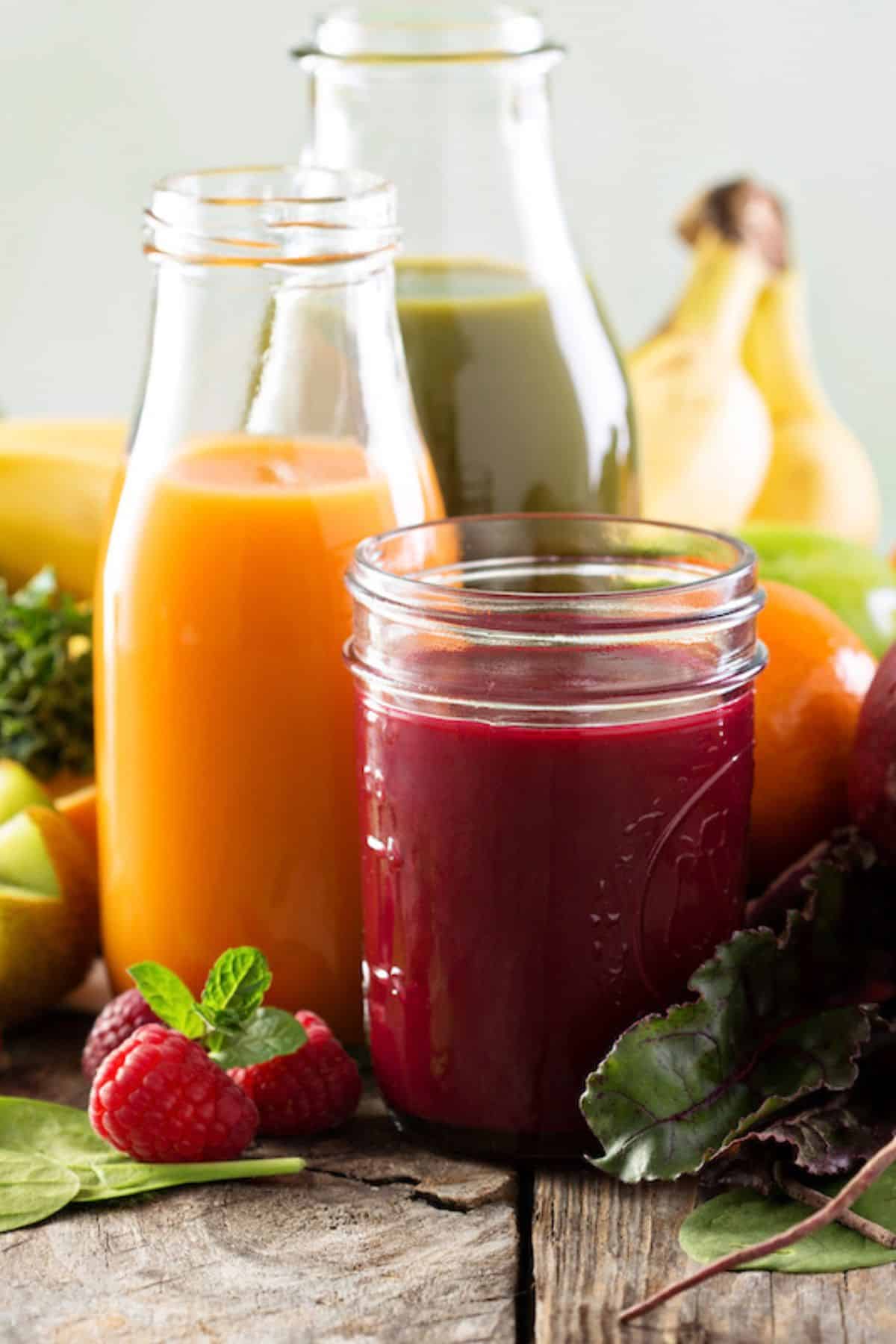
Juicing is the process of extracting the liquid content from fruits and vegetables, usually using a machine called a juicer.
This method separates the juice from the pulp, fibers, seeds, and skins of the produce, resulting in a liquid that’s rich in vitamins, minerals, and other phytonutrients.
Additionally, you can make juices using a high-speed blender, but you’ll have to strain the blended liquid through a nut milk bag to separate the juice from the pulp. See my related article on how to make juice with a blender.
Anti-Inflammatory Juice Recipes
Let’s review some great anti-inflammatory juices using natural ingredients that can help calm inflammatory responses and oxidative stress.
Try making these cold-press juices part of your daily routine and anti-inflammatory diet.
Note: always be sure to ask your healthcare provider if using is right for you, especially if you have certain health problems like blood sugar instability.
Anti-Inflammatory Juice Recipe with Ginger
This Anti-Inflammatory Juice Recipe is tasty and refreshing. It’s made with inflammation-fighting ingredients like turmeric, ginger, and pineapple. Serve this green juice with breakfast or between meals.
If you made me choose one recipe to start with, this would be the one!
Beet Juice Recipe (Juicer or Blender)
This Sweet Beet Juice recipe is a refreshing drink that is so easy to make and tastes great with no earthy flavor. You only need six ingredients for this healthy recipe. Make this juice in a juicer or a blender!
Easy Celery Juice Recipe (Juicer or Blender)
Here’s an easy Celery Lime Juice recipe that is nourishing, fresh, and delicious, with directions for making it in a juicer or a blender. Celery juice is a nourishing beverage that you can drink in the morning, or at any time of day.
Green Vegetable Detox Juice Recipe
This Green Vegetable Detox Juice recipe is made with veggies including celery, cucumber, parsley, and leafy greens that are full of antioxidants. This hydrating juice is a great way to start the day!
Carrot Juice Recipe with Orange & Ginger
Here’s a delicious homemade Carrot Juice Recipe that is full of vitamin C. This recipe uses carrots, oranges, lemon, and ginger for the ultimate healthy fresh juice. Make this recipe using a juicer or a blender.
Best Kale Juice Recipe
Here is the best Kale Juice recipe that I’ve ever made. It is slightly sweet and fresh tasting, with some brightness from lemon and ginger. Make this healthy juicing recipe today!
Fennel Juice
Fennel Juice is a mild green vegetable juice that you can make using a blender or a juicer. It has a mild licorice or anise flavor and can help with inflammation. Try this delicious green juice today!
Turmeric Shot Using Fresh or Powdered Turmeric
The next time you’re feeling under the weather, try this Anti-Inflammatory Turmeric Shot using fresh or powdered turmeric. You can make this recipe with or without a blender or juicer.
Cabbage Juice Made in Juicer or Blender
Cabbage Juice is a great vegetable juice that can help with tummy troubles including ulcers. This recipe includes apple and carrots to help add natural sweetness and balance the flavors of the juice. Make this juice in a blender or a juicer.
How Juicing Can Affect Inflammation
Juicing can provide a concentrated source of anti-inflammatory compounds, but it’s essential to approach it as part of a balanced diet and not a sole solution.
Using the right mix of fruits and vegetables can support inflammation management, but it’s crucial to be aware of potential pitfalls like sugar content.
As always, consulting with healthcare professionals before starting a juicing regimen, especially concerning inflammation or other health concerns, is recommended.
Your doctor can also help you decide if juicing will be enough to help with issues of heart disease, weight loss, acute inflammation, and your overall health.
Nutritionist Tip From Carrie: I like to think of vegetable juicing as a way of getting lots of healthy ingredients directly to my cells. I often drink vegetable juices on an empty stomach, but you can also drink juices with a meal if you prefer.
Anti-Inflammatory Juice Ingredients
Several ingredients have been recognized for their potential anti-inflammatory properties, making them excellent choices for juicing to combat inflammation.
Here are some of the best simple ingredients that can support your body’s immune response and help cool inflammation. Look for these main ingredients at your local grocery store.
- Turmeric: This bright orange root is rich in curcumin, a compound that has been extensively studied for its anti-inflammatory effects. Add a pinch of black pepper to make it easier to absorb.
- Ginger: Another root with potent anti-inflammatory and antioxidant properties. This is a great addition to anti-inflammatory drinks, plus it adds really nice flavor.
- Berries (Blueberries, Strawberries, Raspberries, etc.): They are packed with antioxidants and anti-inflammatory compounds. Plus, most berries are low in natural sugars and help make for a delicious drink.
- Pineapple: Contains bromelain, an enzyme known for its anti-inflammatory benefits, especially post-operative swelling. Pineapple fruit or pineapple juice is one of my favorite fresh fruits to juice.
- Celery: Contains antioxidant and anti-inflammatory compounds that can help reduce blood pressure and chronic joint pain. Celery is also a good source of vitamin K.
- Beets: Rich in betalains, which have antioxidant and anti-inflammatory properties. See my full article on the benefits of beet juice. You can use red beets or golden beets.
- Leafy Greens (Kale, Spinach, Collard Greens, Swiss Chard): These are rich in antioxidants, vitamins, and minerals that can help combat inflammation. If you don’t like eating your leafy greens, the good news is that you can juice them!
- Cherries: Especially tart cherries, which have been shown to reduce muscle soreness and inflammation markers. I have a Tart Cherry Mocktail recipe you might also like.
- Carrots: High in beta-carotene and other powerful antioxidants. Try my Celery Carrot Juice!
- Broccoli: Contains sulforaphane, an antioxidant with powerful anti-inflammatory effects.
- Cucumber: Has cooling and hydrating properties and is also a source of various antioxidants including fisetin. Try my Cucumber Juice Recipe or my Celery Cucumber Juice.
- Lemon/Lime: Citrus fruits are high in vitamin C and other antioxidants that help the immune system. Plus, lemon juice is great for helping to mask the flavor of greens in your anti-inflammatory green juice.
- Green Tea: While not a traditional juice ingredient, it can be combined in smoothies or consumed separately. Green tea is rich in polyphenols, which are anti-inflammatory.
When juicing for anti-inflammatory benefits, it’s essential to maintain a balance between veggies and fruits.
Too many fruits can increase the sugar content, which may counteract some of the anti-inflammatory benefits.
It’s generally a good practice to keep your juices vegetable-heavy and use fruits sparingly for sweetness and flavor. You can also try ingredients like a green apple or golden beet that are low in natural sugars but will add sweetness to your glass of juice.
Want more juicing resources including my favorite juicers and accessories? See my Vegetable Juicing Essentials list on my Amazon storefront!
Juicing for Inflammation FAQs
Some ingredients used in juicing, such as turmeric, ginger, and berries, have anti-inflammatory properties. Incorporating these into juices might help combat low-grade inflammation. However, juicing should be part of a balanced diet and not necessarily a sole solution.
Blending retains the fiber from fruits and vegetables, which can be beneficial for gut health and overall digestion. A healthy gut can play a role in regulating inflammation. Juicing with a cold press juicer, on the other hand, extracts only the liquid, removing most of the fiber from your fresh juice recipe.
While fruits offer beneficial nutrients, they also contain more natural sugars. Vegetable juices, especially those from leafy greens and certain roots like turmeric and ginger, are typically more potent in anti-inflammatory properties and contain less sugar. See the best veggies to juice.
Yes, spices like turmeric and ginger can be great additions to your juices. They not only enhance flavor but also boost the anti-inflammatory benefits. However, it may be better to juice the whole root as opposed to added ground spices as you can then extract the juice which will blend easier into your juice.
Don’t Miss These Juicing Resources!
Don’t forget to join my newsletter list to get exclusive clean eating recipes and tips. The newsletter is 100% free with no spam; unsubscribe anytime.
About the Author: Carrie Forrest has a master’s degree in public health with a specialty in nutrition and is a certified holistic nutritionist. She is a top wellness and food blogger with over 5 million annual visitors to her site. Carrie has an incredible story of recovery from chronic illness and is passionate about helping other women transform their health. Send her a message through her contact form.
Note: this post is for informational purposes only and is not intended as medical advice. Please consult your healthcare provider for recommendations related to your individual situation.



